0 Comments
The end of the year is coming and I got asked, if you would give one piece of advise, what would it be? In my experience dealing with leaderships, one foundational attitude I discovered is Win-Win. In our work life we come across various situations: developing a product, negotiate with a client, hire an employee, resolve conflict, onboard a supplier, provide feedback, conduct meetings, and simply solve a problem. When you observe yourself in these situations, how often do you want to win, how often do you want the other party to lose? Or you might simply not care if you lose. All these attitudes have in common that they are not effective. For success, we need to practice a win-win attitude. When I help people to obtain this new approach, I usually share Green & Clean by Stephen Covey - a fun and inspiring introduction to the topic. And there are so many great quotes which I would like to share here:
How will you approach win-win in your next negotiation? This week the EuroCham has organised a great event about "How to Transform Manufacturing to Meet Net Zero?" with a very vivid and insightful panel. One highlight I want to share is the answer to the question: what would you wish if you had a magic wand?
"If I had a magic wand, I would bring people back to value our planet! Create that feeling of appreciation for what we are receiving from Earth. I wish that people would see the value they are getting out of nature. It is time to pay back." Very powerful words and I can only strongly support this wish. The event was linked with an introduction and visit of the production site of Asia Pacific Brewery, and the company is very strong with their impact related activities. The organisation is passionate about their 'brewing a better world' campaign and clearly working along the triple bottom line of planet-people-profits. Let's continue to strengthen the awareness that sustainability is a huge business opportunity. We as individuals, as organisations and as societies can greatly benefit. Many of you know that I am a self-declared 'positivist' - a person with a strong belief that when we look at things from the bright side, we will deliver better results, be more creative, and have more energy - enabling teams to give their best! And while following another passion of mine - sailing - I found another proof that I am on the right path "Does it ever go too far, where you said, we had a bit too much fun there?" - "No, never too much fun!" Team Malizia of the Ocean Race has been recognised as The Team that is always in a good mood and seems to having a blast in their boat in the middle of the ocean. Here is one of their team mates sharing her experience: In a nutshell:
Hive17 Consulting is running change facilitation programs that enable teams and organisations to create a work environment that enables everyone to give their best. More about Team Malizia - Ocean Race Why are you afraid to share news that is not exciting? Honesty wins the hearts of the people24/3/2023 A long long time ago, I heard this term in the business world - "on a need to know basis". Yes, still today people think that is a sensible approach to working together and doing business. On my side, from the start of my career, I felt it was wrong. As a recipient of this statement you simply feel stupid and marginalised. In a way, a very disrespectful expression.
In today's world, leaders are expected to be humble, truthful and vulnerable. To a great extent, we need to be honest. Hontest with the people around us and honest with ourselves. In recent news we hear about companies making wrong claims, hiding realities, green-washing, etc. While in the past, it might have been a competitive advantage based on information asymmetries. In today's open world, these are quickly eliminated. The successful company is innovative and works closely together with their partners; up-stream, down-stream, left and right. It is ok to make mistakes, it is ok to not be the leader in carbon emissions, it is ok to not know the future. The most important thing is, we are trying our best to create a better environment for our next generations. Let's be honest. How am I becoming a better leader? This is a question that I encounter a lot during my engagements. And the question is not: what is good leadership? Most people know. The question is, how am I practising good leadership on a daily basis? This is so hard!
One of the key focuses as a good leader is developing your people; creating a learning organisation. In whatever we do, we want to learn. We want to become better. This is where the core of growth is hidden. For this 'learning first' focus, there is a base mindset which is important. I am not here to teach others. As a leader, I need to create the environment for learning. Here is a ladder of this mindset.
This means, as a leader, I need to focus on my own learning; learning from the people around you. And with this, you can stimulate the desire to learn; and create the foundation of a learning organisation. When will you start to question what you really know? Not so long ago, I was called by my friends "Mr Gadget". And still today, I am looking at the latest laptops and mobile phones - I really would love to buy them. They seem to be so much better than what I am using today! Really?
Here some interesting figures from the Waste Electrical and Electronic Equipment (WEEE) Forum:
So, the big question is: is your current electronic device still useful? Can you repair it? When you must replace it, can you buy a second hand device (many people try it once and then sell it)? These are important questions to ask. Not only for gadgets. Here is what you can do:
So, I am still happily using my three year old laptop and four year old smartphone - they are actually great devices! Source: 5.3 billion discarded smartphones this year are 120x higher than international space stationwww.designboom.com/technology/5-3-billion-discarded-smartphones-this-year-10-14-2022/ Today I was invited to participate in the Greentech Festival and it is always refreshing to see that the sustainability topic is promoted from various angles via a diverse group of people. For me, it was also a time to catch-up with friends and engage in many insightful discussions. One theme popped up which I want to share here. We need to be more honest. Especially when it comes to sustainability and our impact on the planet. And, we need to be honest with understanding and with respect.
Respectfully Honest And in this phrase, we can also bring the Asian and the European culture together and combine the best of the two worlds. The factful honesty which is often assigned as an European quality. And the tactful expression of thoughts which can be observed in many Asian cultures. Let's bring these together. Let's be honest that we are still far away from where we should be in terms of sustainability. Let's be respectful and encouraging that we have started with the first important steps. Earth Week - As a change manager I am interested in many different forms of change. One particular one is nature, our planet earth. It is inspiring to observe what happens and discover similarities to the changes we intend to create in our work and life. Our planet has evolved over millions of years and created spectacular lifeforms. Humans evolved over thousands of years to reach its current sophistication. And we did experience a tremendous change over the last 100 years of how mankind has impacted the natural cycles. These are the big changes we can observe, discover and be inspired by. And on the other side, we can experience how nature changes around us every single day. The video below shows this cycle with the colours we can experience from dawn to dust. This is a great reminder how we are embedded in constant change; embedded in nature and embedded in the people network we are living and working. And these daily, small changes then also lead eventually to the larger changes we desire to achieve. Keep the big vision and start with small steps that lead us in the right direction. Wish you an enjoyable day on planet Earth. Yes, I am a positive person. I smile a lot and people around me tend to like the energy I am spreading. I hear that a lot and I am very glad about this. And for sure, this is a personality trait of mine. Though, I am also convinced that positivity is the right approach to facilitate change. Neuroscientific studies share that when we bring people into a positive emotional state, they will be more creative, malleable, become better at solving problems and are simply more energetic.
During our leadership development programs at Hive17 Consulting, we are putting a strong focus on positivity as well - part of our change management practice. As positive leaders we can create a safe work environment that drives creativity, motivation and hence productivity. This will result in better solutions for the customers, improved operational excellence and stronger retention of your talents. How can you practice the right leadership qualities so that positivity becomes your second nature? Here are some hands-on tips to build new routines. As a start, know your direction and write down a meaningful vision that you want to achieve. Then it is important to meet and interact with a variety of people. Practice the appreciation of different opinions and ideas; stop judging them and be open for new discoveries. Lastly, stay fit with sports, good food and mindfulness. How antifragile are you? Assess all your leadership qualities based Hive17's Leadership Wheel. Check out the link below. Painting credit: Annika Wieringa, March 2022 One of my past time activities is tending to a garden and growing plants. This requires preparing the soil, nurturing to the seedlings, watering regularly (not too much, not too little), checking on pest and allowing the right amount of sunshine. In short, creating an environment where the plants can flourish!
This is how we look at change management at Hive17 Consulting. We aspire to create an environment where the people understand and are excited about the change to come. We are looking at the long journey ahead, keeping an eye on the imagination of the future state and then enjoy the steps that lead in that direction. I like this link to gardening and landscaping because of the number of similarities. Forcing change will not lead to lasting success. A series of environment ingredients need to fit together - it is an ecosystem. While grow and change takes time, it happens constantly and we might be surprised about the speed. When we have a fertile environment, the results are solid and beautiful. How are you cultivating a great environment in your organisation? Every day we are confronted with challenges that require solutions - they might be small, they might be big. Following the same patterns and focus on past achievements is at best futile - what we need is creativity. And why not ask the creatives for their tips?
Hideo Kojima is a Japanese video game design since over 35 years and can celebrate decent success in his industry; and, he wrote a book about his secrets. One key thing he shares that without fail, every day he is visiting a book store and browses through the books. He then buys a book that talks to him and reads it. This routine brings him a wider perspective of the world, provides him new inputs, and also gives him the opportunity to get a break from work. He also emphasises that he keeps this routine from being mundane. The same book in a different store is speaking in a different way to you. Therefore, he keeps visiting new bookstores to keep his mind and heart fresh. What can we do to keep a fresh perspective and stay creative? Find an activity that suits your surrounding and interest, which allows you to get a perspective of the bigger world around you! And establish a routine for that; a simple 30 minutes task every day. What can that be? Walk around your neighbourhood as a tourist; call a friend you haven't spoken with in two months; find an online course about a topic you want to discover more. There are plenty of things to learn and discover. What will you start with? Please share! Source: Hideo Kojima on What Makes Hideo Kojima Tick, Wired UK, October 2021. Photo credit: Charlie Clift. Last week I was sharing some thoughts with a friend about leadership and how we can bring the best out of our team members and peers. In this conversation, we thought about a new quality of a good leaders: being malleable - able to be changed and to adjust.
Around us we can observe managers that want to give direction and give guidance to their team members. They are confident with the experience they have and want the people around them to learn from them. This almost sound like a good thing, right? Though, in my experience there are a few side-effects which I would prefer to avoid. One is that with a rigid mindset, we are limiting the people's autonomy and creating frustration. Another is that we encourage the people around us to listen instead of applying their critical thinking capabilities. And a last - and in my eyes crucial - element is that we are limiting the creativity, innovation and development of the team. What can leaders do instead? Ok, let me introduce another fancy word: impermanence. Things around us are in a continuous cycle; they are changing all the time and nothing is really permanent. Once we acknowledge that the ecosystem we are in has the qualities of impermanence, we also come to realise that we need an open and curious mind to absorb this ecosystem and to be able to thrive in it. With this we are able to adjust to the permanent change around us. How can you apply this in practice?
These are some initial thoughts around the quality of being malleable. What do you think about it? Where do you see this to be applicable and important? A few weeks back, I shared some views how you can let go of control. Why would you want to do that? Because the people at the front know how to create value to our customers; and they need to be able act fast without barriers - control from the top. Have a look at the previous post: Letting Go of Control - Made Easy?
Once you let yourself guide by others, how do you get up along the U? That's a valid question I received after sharing the last post. Here are some thoughts around the right side of the U. Before we climb up, let me share more about the left side and the valley. With the steps on the left side, you can imagine that you are going down a hill. In the moment you think that you let yourself be guided by others, you realise that hill turns into a cliff and you need to climb further down. And most probably it feels like you are walking in a fog; there is no view of the other side of the valley. It feels like going through a tunnel or crossing the sea. I like this analogy because in problem solving you often want to immerse yourself in the current situation like an anthropologist and thoughts around possible solutions should be far away - early solution ideas might only lead you into a wrong direction. Only when you really let go and you are in that opaque place, the magic can happen. Ok, not real magic, though it might feel like this. When we are drifting (not consciously seeking anything) then suddenly things will get clear, the new journey will appear right there. This might sound very esoteric but it is not. People who practice design thinking might be able to share similar experiences when they get inspired by empathising with the people they are creating value for. Long prologue... So now, how does that journey up the hill look like?
Reflecting on the entire journey along the (theory) U, I think the right side might be more familiar. The big part of letting go of control happens on the left. Letting go of judgment, ego and power are essential for this new leadership. It starts with difficulties on the path down (left), and it continuous inspired on the path up (right). It does feel like a freedom once we don't need to control anymore. How did you apply these steps into your leadership role? Yesterday we had a day off; and as so often I was heading into the forest. And every time I am amazed on the impact the dense green has on my mind and body. After an hour surrounded by trees, birds and monkeys, my body and my mind feels refreshed and energised.
This week, I came across this article - The fight for quiet in a world full of noise pollution - introducing a group of people on a quest to raise the awareness of noise pollution and certifying quiet parks. When is the last time you have been in a place that is void of human noise? The group is mentioning a series of positive impacts when enjoying time in quiet places: mental power, overall health, creativity, stress relief - to name a few. It is weekend - let's go out and listen to the sound of nature! Photo credit: Shawn Parkin, Wired UK Here is a conviction of mine, I have been sharing before. In an environment that is complex and continuously changing (who is denying now that we are in this kind of world?), we need to understand how we can create value and we need to act fast.
Who knows best how we can create value? The people at the front. The sales people that talk to the customers, the people that are running through the process steps, the people that are delivering the packages to the doorstep. How can we act faster? If we allow the people at the front make the decision that will make their work smoother, easier and then creating more value. As a logic consequence, we leader should let go of control and handover decision making power to the people that are best equipped to control their (part of the) boat. And still, I can observe many leaders struggling with this. Struggling to let go. One aspect: what else is my purpose of my role? This is answered very easily: provide direction, remove bottlenecks, allocate resources, and create a work environment that is motivating. This is already a lot of work when done properly. So, let's free up some time and give the controls to others. How to let go? Are there any easy steps? Last week I was introduced to some of the backgrounds of Theory U - a concept that gives new insights how we can tap into collective capacities. When looking at the left side of the U, there are some clear steps that lead to letting go. Here they are in my own words: Minimise judgement - judging actions as good or bad prevents us from seeing behind the actions and blocks the understanding of the Why people have done a certain activity. When we open our minds, we start to be curious and can see with fresh eyes. Bring ourselves on the same level - if we think we are better than others, this will block the learning process (the same if you think you are worse than others). Stop critique and cynicism and come down from our high horses. Then we will be able to open our hearts and sense the environment around us. Let us guide from others - as long as we still want to steer the ship by ourselves, we will not discover the potential in our peers. Let go of our fears and open our will, and totally new possibilities will be unleashed. What holds you back from letting go? How did you feel when you actually achieved it? About two years ago, I stumbled across #slowdowntospeedup and this tag line represented a few things that I stand for. Today, this slogan is more relevant than ever. I observe people around me burning out, many peers feel huge pressure to deliver, and many organisations stopped their strategic planning cycles. Just yesterday, a person shared with me that they wished to find 3 hours in their calendar to focus on some work. Does that sound familiar?
This WIRED article - How Slack ruined work - illustrates how the always-on culture is destroying the flow in our work. The various messaging tools we are using, combined with the a high expectation to immediately respond, has created a constant source of distraction. This leads to stress and a feeling of being overwhelmed. It is time to stop - to slow down. Why do I think slowing down will speed us up? Here three thoughts:
Ok, great - I want to slow down. How can I start? First of all, this is a journey and will take a while. A journey during which we will learn a lot. Keeping this in mind, I suggest create a weekly block in your calendar of 2-3 hours. This big rock is for yourself - for activities outside of your daily work. Enjoy this time off. What else can you do to slow down and balance your life? When is the last time that you have been frustrated that you have not reached your objectives? This might be a personal fitness objective, an ambitious result for your sport or a project deliverable at work. In my practice, I observe that most people are setting goals that seem to be unachievable. Which can lead to frustration and in the best case, lack of celebration. Is this in itself a bad thing?
Setting high ambitions are a great thing. They can induce passion and purpose we want to strive for. This collective dream brings the members of a team together, they create alignment and meaning. There is no doubt, ambitions and objectives are essential. And this collective dream makes us start the journey. Though, they are not good to sustain our motivation. A true, deep motivation requires that we are disconnecting enjoyment from the actual achievement of the goal. This means, we appreciate the journey that leads towards our ambition. As a swimmer, I have the ambition to reach a certain result in an open water competition. Though, I enjoy the preparation and training that leads to achieving this result; this keeps me motivated. Similarly at work, while we set a specific goal to bring our operations to excellence, we appreciate what we are learning along the way. The goal is almost an excuse to create a journey of excellence. In order to build this motivation, I suggest to keep reminding yourself about the feeling that is created by the activities (and micro-achievements) that lead towards your big picture goal. Make the journey worthwhile and valuable in itself. Then you might never lose momentum to reach your collective dream! This year has brought many changes and we all had to innovate with great speed. One of these areas is the way we are working. After month in this frency, I hear more and more people mentioning that they are simply too busy; too many meetings, changing priorities, new organisational structures, people leaving companies... This is stressful and I see people around me burning out. What are we doing wrong?
Inspired by this Entrepreneur article - 4 Ways to be More Productive, not just Busy - I put together a set of simple principles on how to create more value and not simply working more hours. And if you only want one line it goes like this:
1) Know Your Priorities - with external input and based on a good conversation in the team create your own priority list and keep evolving it. Reduce distractions and stop following other people's priorities. 2) Big Rocks First - based on your(!) priorities first plan your second quadrant activities - these are the important and non-urgent items - in your daily, weekly, monthly and quarterly calendar. Only then add the urgent stuff. 3) Experiment - avoid perfectionism when you deliver and frequently interact with the people you are are creating value for. Switch to try-to-learn experimentation. This means try things out, build prototypes to test your assumptions and then validate them - it is a learning journey. 4) Reflect & Energise - take regular breaks by simply looking out of the window and pause - wind down for 5-10 minutes every hour or so. This will make your creativity flow and new ideas will pop up. How are you switching from sprinting to creating lasting success? I am sure that Iolanda Meehan, Veldhoen Company, can provide more excellent advise on this. Already 15 years back, we heard that the number 1 reason for being stressed are distractions. That's when we sticked red post-it notes on the screen to indicate: "Don't distract me". We are also often heard that when we are distracted from a piece of work, it might take 23 minutes to be back in our 'flow'. Why is this important to keep our distractions at bay? They create stress, kill our productivity, limit our creativity, influence the way we concentrate on conversations, losing focus on what is important... The list might go on and on.
In a recent interview, Andy Puddicombe mentions we are spending 50% of our time distracted. This is a lot of time! And instead of trying to blame externalities for these distractions, he suggests to look inward. Recognising and labelling these distractions is a great start to reduce them. And as we are training our muscles and our stamina with sports, we can train our mind with regular exercises. After almost 100 hours of meditation, I see results. This routine is part of keeping my body, mind, heart and soul fit and strong. As a result of being mindful, you will look at distractions in a different way; allowing yourself on focusing on small steps. Not getting lost in too many parallel activities and thoughts about things that are not relevant today. This might happen in the context of a conversation with a peer or in the context of a large scale project. Creating a space to reflect and focus on what is creating value. Source: Headspace Co-Founder Andy Puddicombe Says We Spend Half Our Lives Distracted. Here's His Simple Solution. This June was the first time I came across this word - Antifragility. Grant Rawlinson mentioned it as a strategy he applied during his adventures. Recently, more people started to mention it and I got curious. The story is simple. When we are fragile, we break under pressure. We start to be resilient; that means we don't break under pressure - we are surviving. The idea of antifragility is that we are growing and becoming stronger under pressure. Nassim Taleb defines it as:
"Some things benefit from shocks; they thrive and grow when exposed to volatility, randomness, disorder, and stressors and love adventure, risk, and uncertainty." How can we become thriving under pressure? Buster Benson summarised ten principles based on Taleb's book. Here are my thoughts around it:
In order to create lasting success, we might want to build a collaborative foundation and have a clear direction where we want to go. Then, we can combine this with curiosity to experiment and with a common understanding who are we creating value for. This might be a formula that avoids the trap of short-term thinking and shortcuts that ruptures our strength over time. Source: 10 Principles to Live an Antifragile Life Uncertainty has been discussed for some time and in 2020, we experienced it in a new dimension. I used to ask leaders to show me their 18-months plan from 18 months ago. Now, I think it is clear that past plans don't hold a lot of guidance anymore. How can we still lead our teams and create confidence and success?
Anita Sands shared in this article the seven habits for highly effective leaders in times of uncertainty. A great real life experience sharing what works for some of the best leaders. These seven points allowed me to reflect on four pillars of my Wheel for Agility - I haven't been so far off. 1. Balance Realism And Optimism - People in general prefer bad news over uncertainty. Not knowing what comes is very stressful. At the same time, even the worst situation holds opportunities. As a leader it is important to strike a balance between the two. Get the people out of a downward spiral. 2. Communicate Often And Authentically - Proactive communication goes hand in hand with the first habit. Vulnerability shows that we are human and that creates better connections. If we don't have an answer for the future, we still have the values we are proud of. Let's continue to live by them. 3. Focus On Purpose And Culture - Many successful leaders have evoked passion in their employees and their customer base. Why am I giving a lot of my life's energy for this company? A leaders provides a meaningful answer to this question. I like to call this creating a collective dream. 4. Nourish Yourself - As a leader we are giving a lot of energy to the people around us. Do you have enough energy yourselves that you can give away? This means we need to continuously fuel our body, mind, heart and soul. Be generous to yourself! 5. Evaluate Competitive Positioning - Many organisations fell in a fight/flight/faint/freeze mode due to the huge negativity created in the past months. As a leader it is important to create a positive environment that allows creativity and the discovery of new solutions that bounce us forward. This also requires a deep understanding of the needs & challenges of our customers. 6. Get And Stay Curious - New solutions only come from experimentation - let's try things out and evolve from what we learn. As a leader we need to be curious ourselves, and we need to empower our teams to be curious and experiment. Further, curiosity is correlated to resilience; it enables a range of cognitive, emotional and social capabilities that allow us to cope with duress. Let's walk around with a beginner's mind. 7. Pause And Celebrate Successes - Simply rushing forward might make us blind to understand if we are on the right path. Regularly pausing and reflecting on what we have achieved and learnt; this gives us the space to focus on the right opportunities. Celebrating even the smallest success, will bring some of the positivity back. This gives us a glimpse of the blue sky above the clouds. How do you inspire your teams? Sources Until not so long time ago, success was defined by following a plan through, or you designing a product that is flawless, or you following the process to the dot. Management schools and project management standards have contributed to this push of perfectionism. The base for this are assumptions that markets are stable, customer needs won't change and operations are easy to map into processes. With the current crisis, and even before that, we experienced that we can't rely on these assumptions? The world is changing faster, the future looks uncertain and ecosystems are complex.
Why do we as leaders feel it is hard to move away from perfectionism? "In the midst of great uncertainty, leaders across all industries are adjusting strategies and supply chains, rewriting the rules of operating, and sometimes making things up as they go. This kind of leadership demands mental agility. However, there is a challenge: our minds are not naturally built for agility." This Harvard Business Review article shares insights on how we can address our mental barriers to agility. The first challenge are the distractions. Every day hundreds of messages are asking for our attention. And, we tend to get involved in too many activities; too many priorities are demanding our input. It takes courage and new habits to remove these distractions and focus on the things that matter; the old 'signal versus noise' situation. We can achieve more agility when we focus on small steps, intermediate achievements, instead of keeping a constant focus only at the top of the mountain. The second challenge is about our ego. I had success with this in the past; my opinion is correct; I already have invested a lot. All this is fixing our mind and prohibits fast adjustments. Instead, as leaders we need to look at the collective wisdom, listen to all the people that are close to the market. Authentic leadership allows to be closer to reality and removes the self from the equation. And as a result, we and our team members can be more self-confident. The third challenge is empathy. In a crisis we are expected to recognise and resonate with the emotions of the people involved. This is a very important step to overcome the difficulties and come out stronger than before. At the same time, we might reach a paralysis and are not able to make decisions that might hurt some people; then empathy might slow down our agility. As a leader we can find a balance with constructive compassion. This means we are respecting the emotions of people, we treat them as humans. Keep looking for the value these people are bringing, in the larger context of things. Is your mind ready to conquer the opportunities of the next crisis? Illustration by Keith Negley This week I attended a webinar organised by BI Worldwide, Grant Rawlinson sharing how he has attempted to cross from Singapore to New Zealand on human power: rowing and cycling. The key lesson he learned during this journey? Resilience is being able to weather the storm. Though, sometimes we need to be able to grow stronger when we are under pressure - Grant calls this "Anti-fragility". Here are my key take-aways.
1) In a storm, don't make strategic decisions! Keep going; there will be sunshine soon again. 2) When you hit a major roadblock, go back to your original objective; the purpose why you started the journey. 3) Select your partners based on motivation and mindset; skills are not a good indicator for successful teamwork. 4) Only spend so much energy in a day that you can regain in that day; with this sustaining effort you can go on forever. This explorer's mindset is true when you want to achieve a major adventure like the crossing Grant is attempting. And this also applies when we as an individual and as a business are facing a crisis like the current situation. It might very well be an opportunity to grow stronger. Thank you Omar and David. Photo Credit: Alistair Harding In my experience when facilitating teams to accelerate their operational excellence, I like to talk about two things. And, they seem to be a contradiction.
"Sustainable change is effortless!" This is similar when you are fixing a screw and at the start it is hard; a simple correct alignment will do the trick and the job is much easier. Many transformation are getting launched with too large climbs and with methods that simply doesn't fit to the style of the people. Too much efforts during a change journey might often be a waste. "If everything seems under control, you're not going fast enough. (Mario Andretti)" This means that a great challenge creates a lot of excitement and motivation. When we are too comfy, then we are not trying hard enough. Pushing our own limits is actually fun. How does these two thoughts match? They are helping us to create a balance. Too much push - especially from outside - will drain our energy and is frustrating. Too little effort will make us slow down and kill the momentum. The balance in between will allow us to run at the edge effortlessly and for an infinite amount of time. This is essential to successful transformations. Where do you find this balance? |
Subscribe
Receive our monthly themed summaries of our thoughts: click! TimTim is a change practitioner in the area of innovation and excellence. He is working with teams to accelerate innovation, collaboration and agility. Categories
All
Archives
July 2024
|
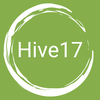

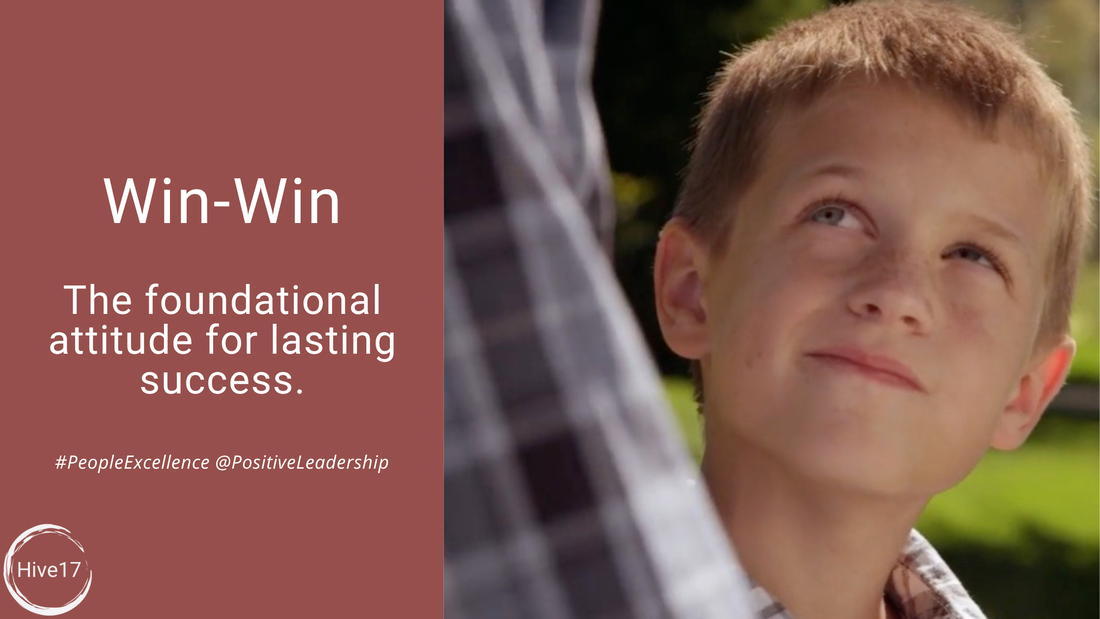
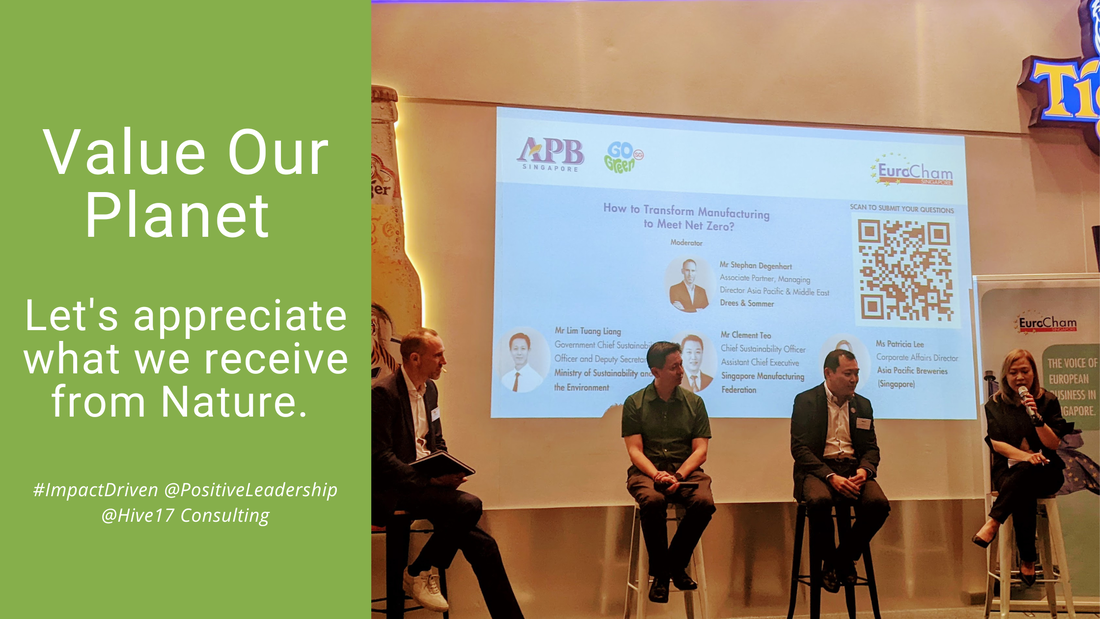
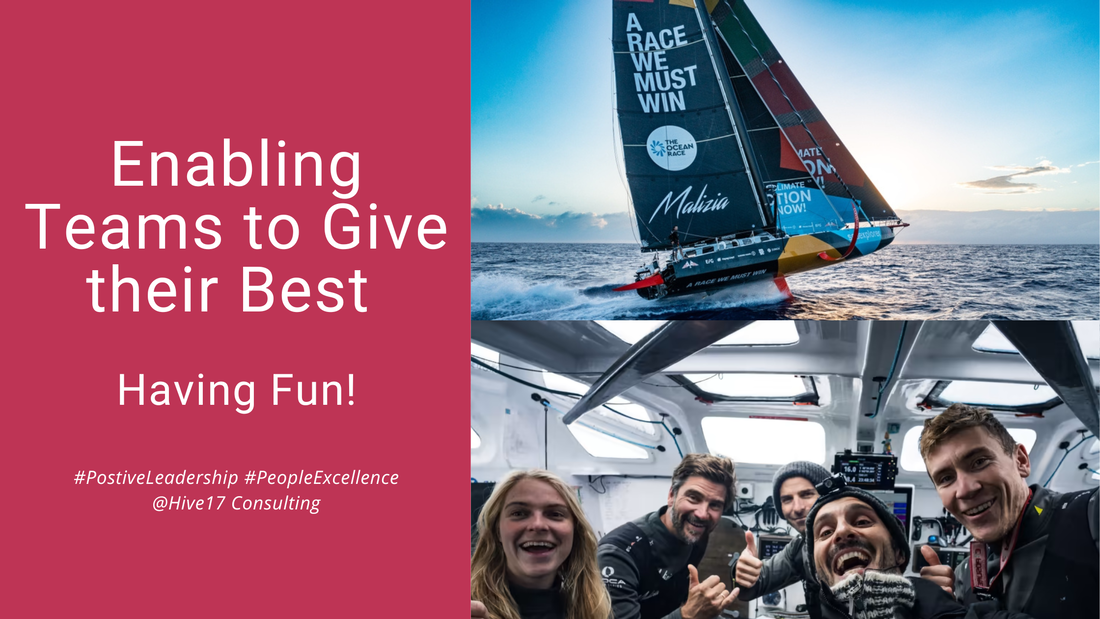
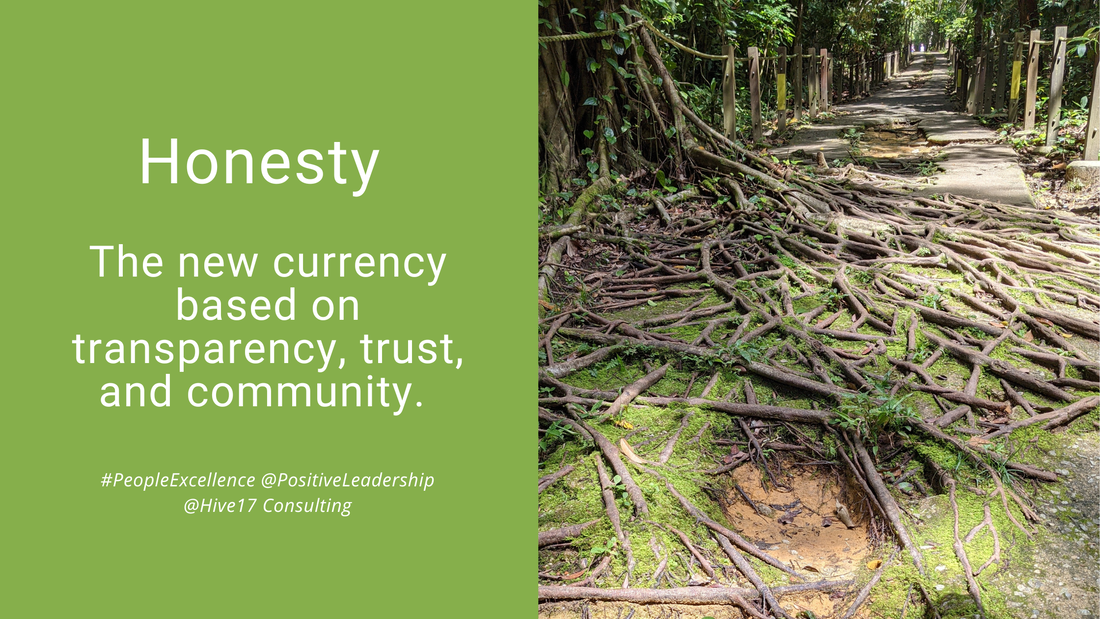
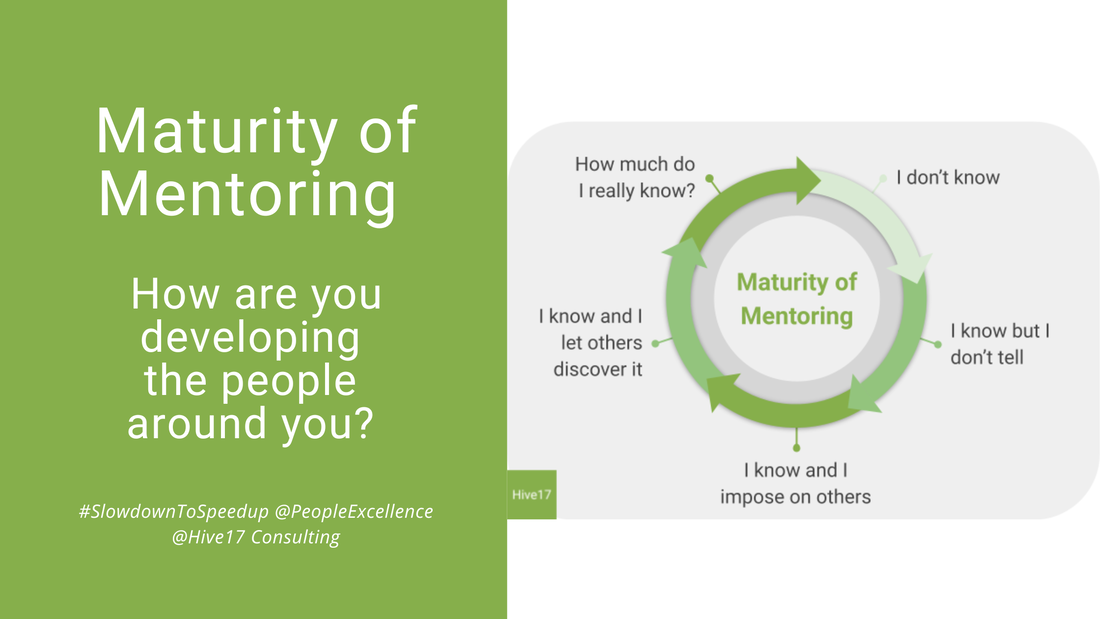
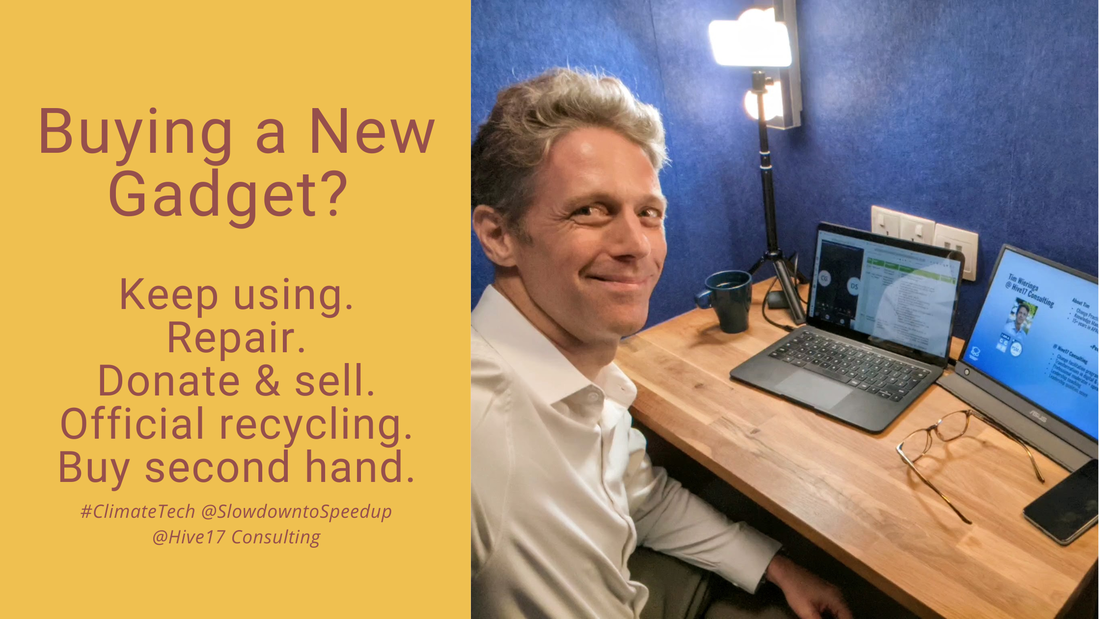
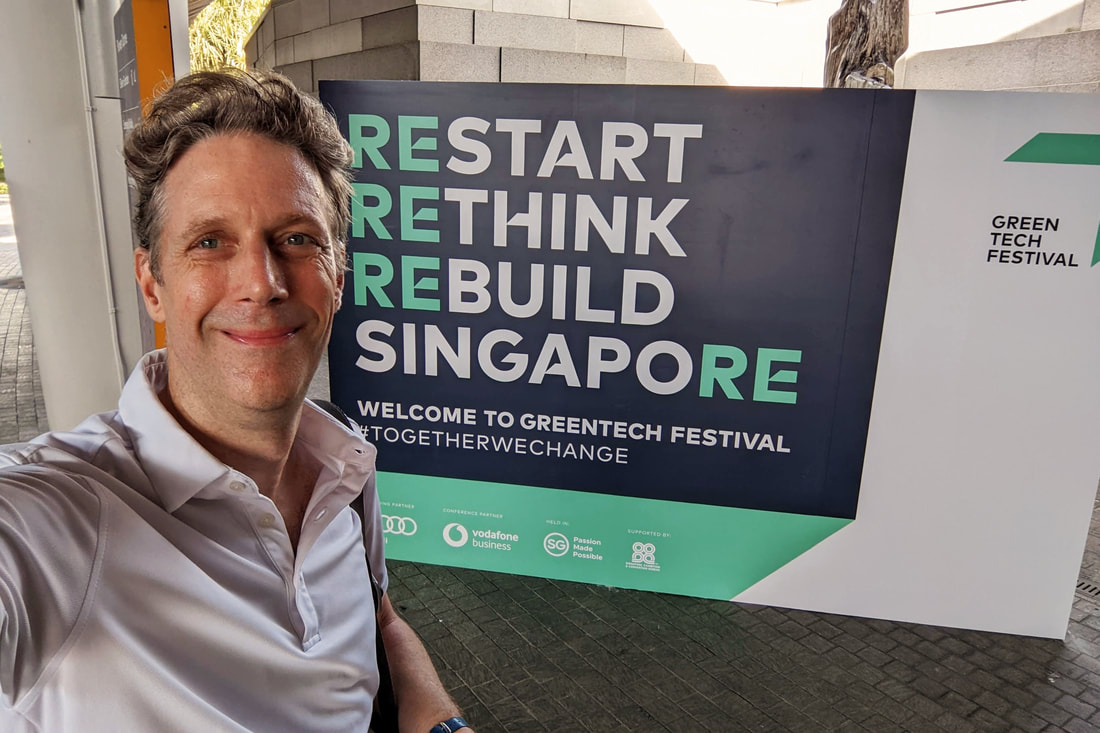
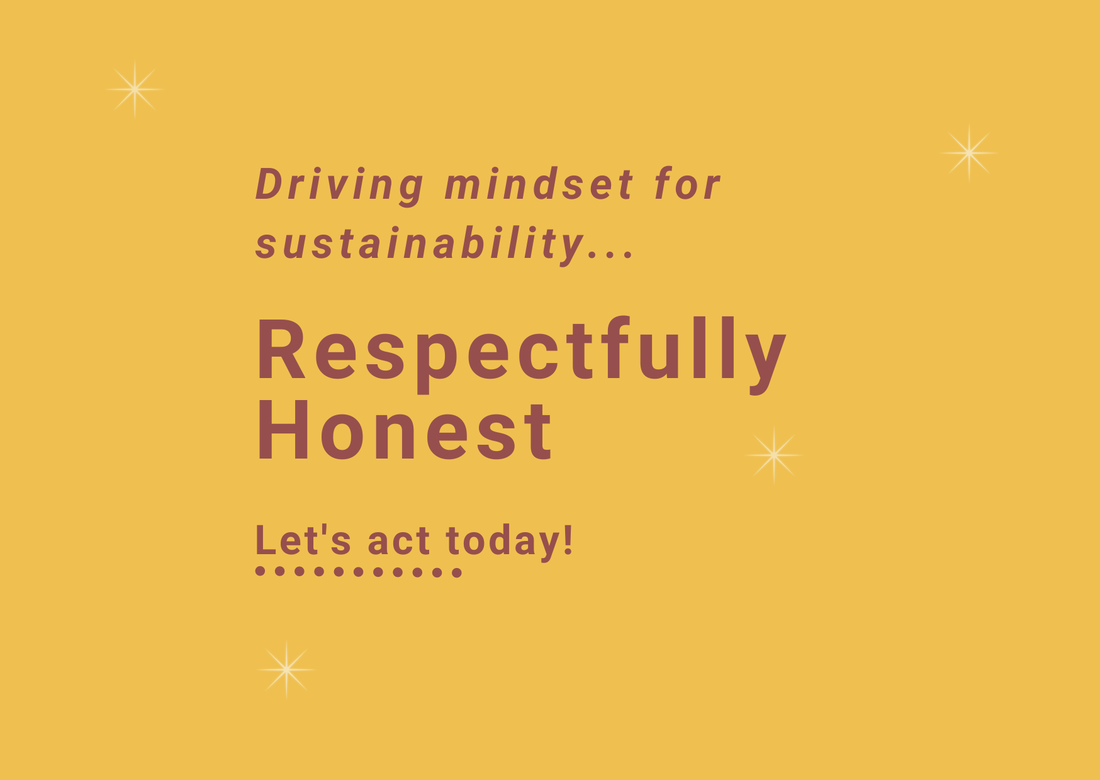
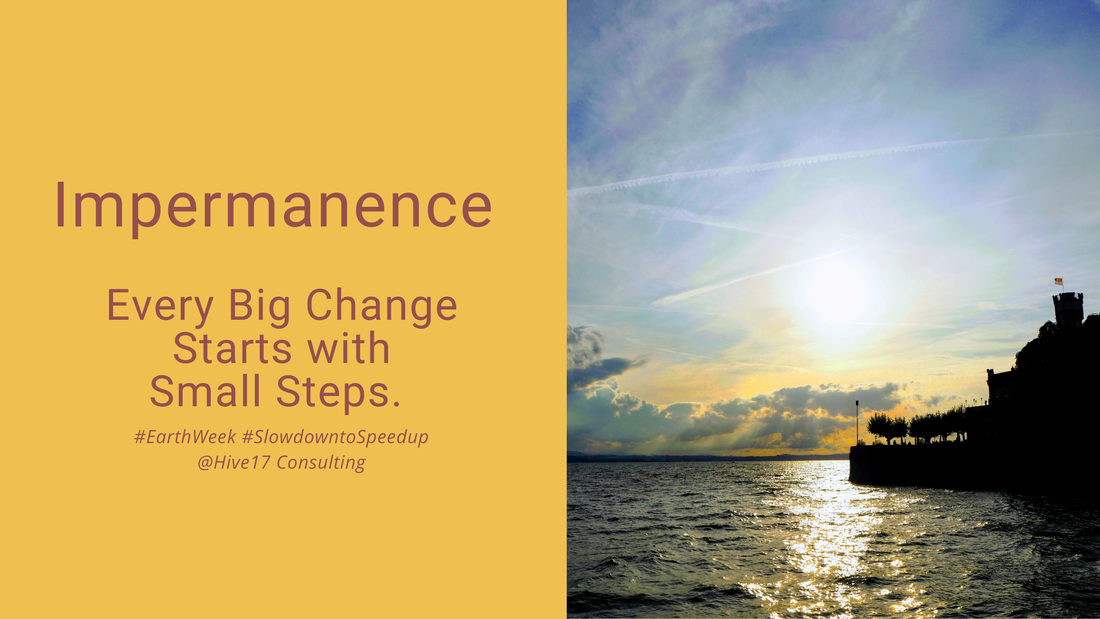
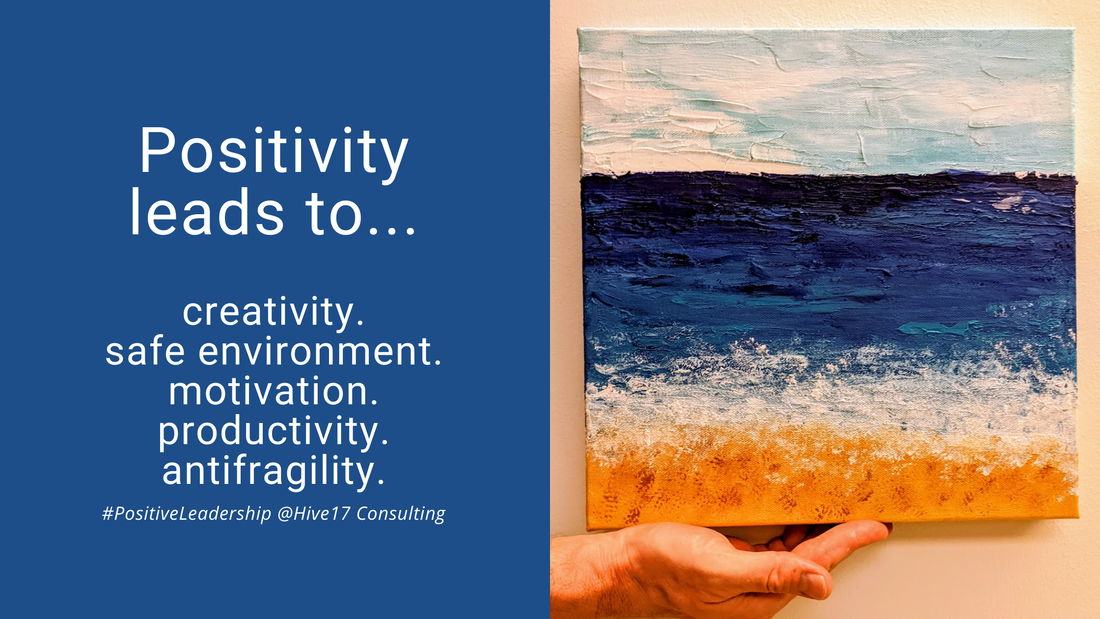
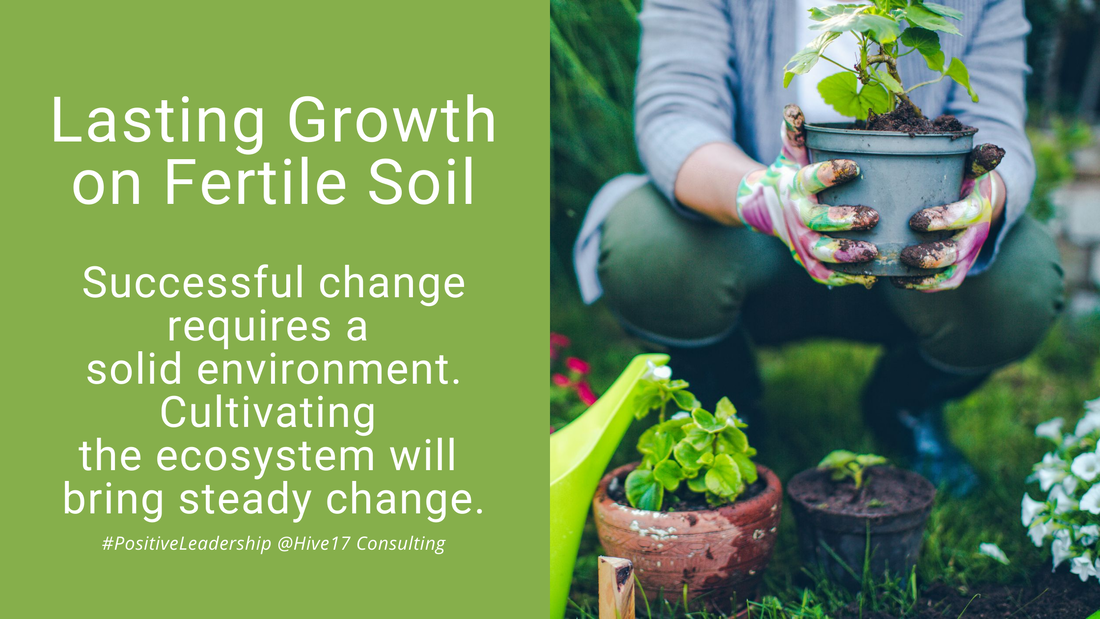
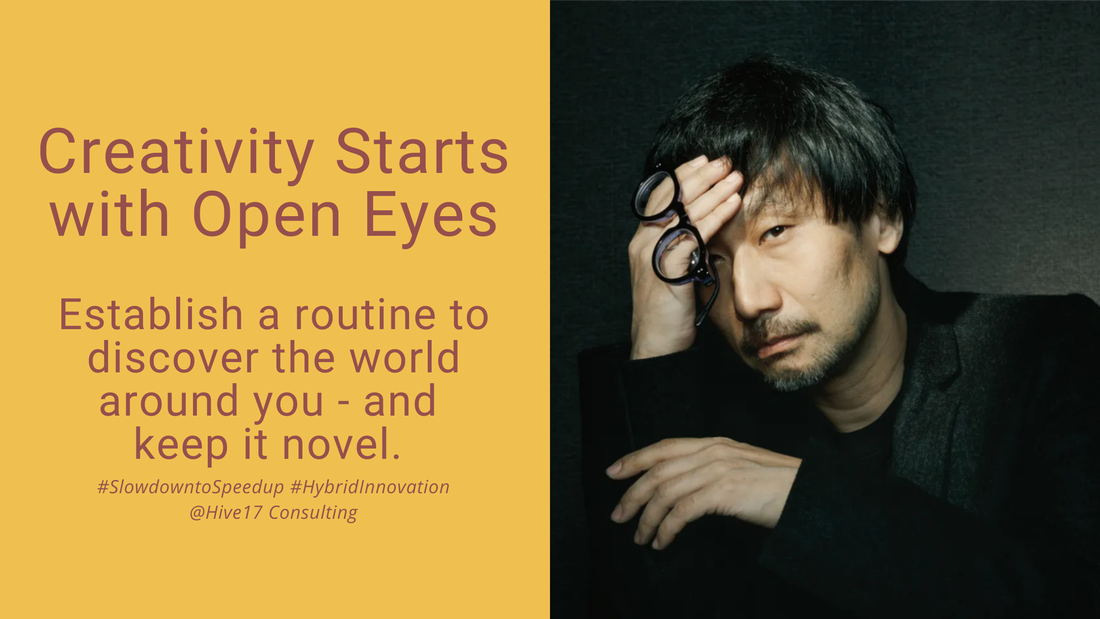
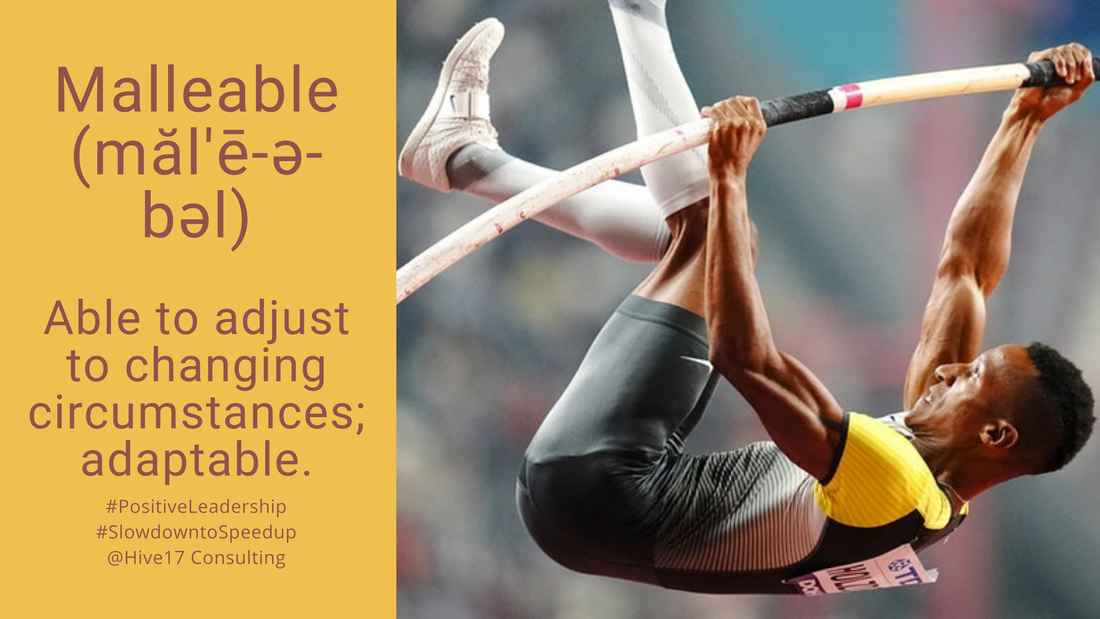
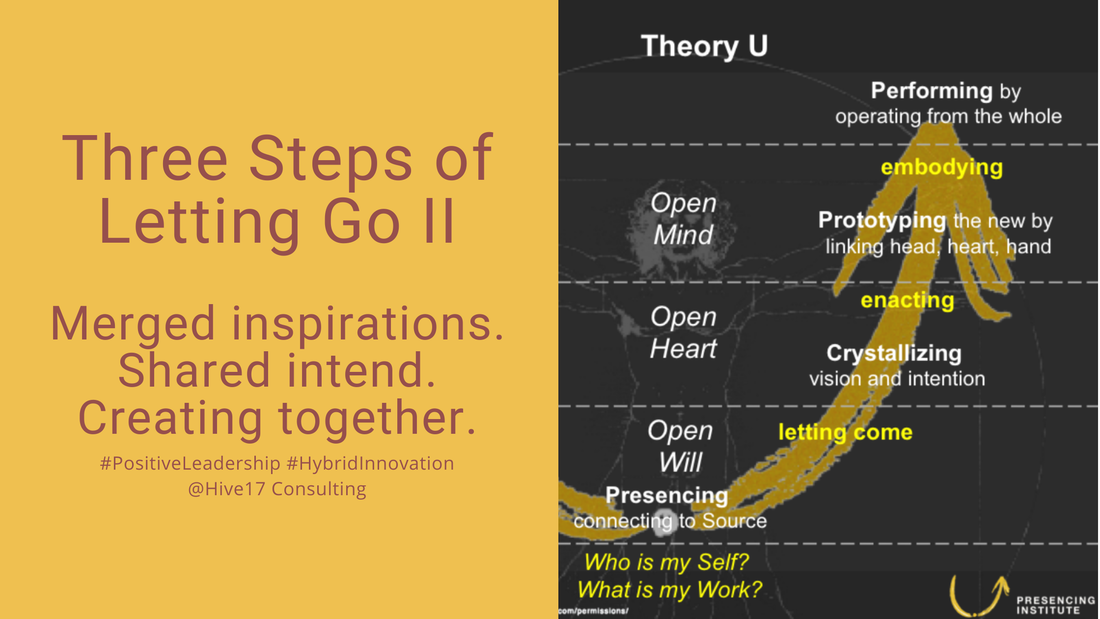
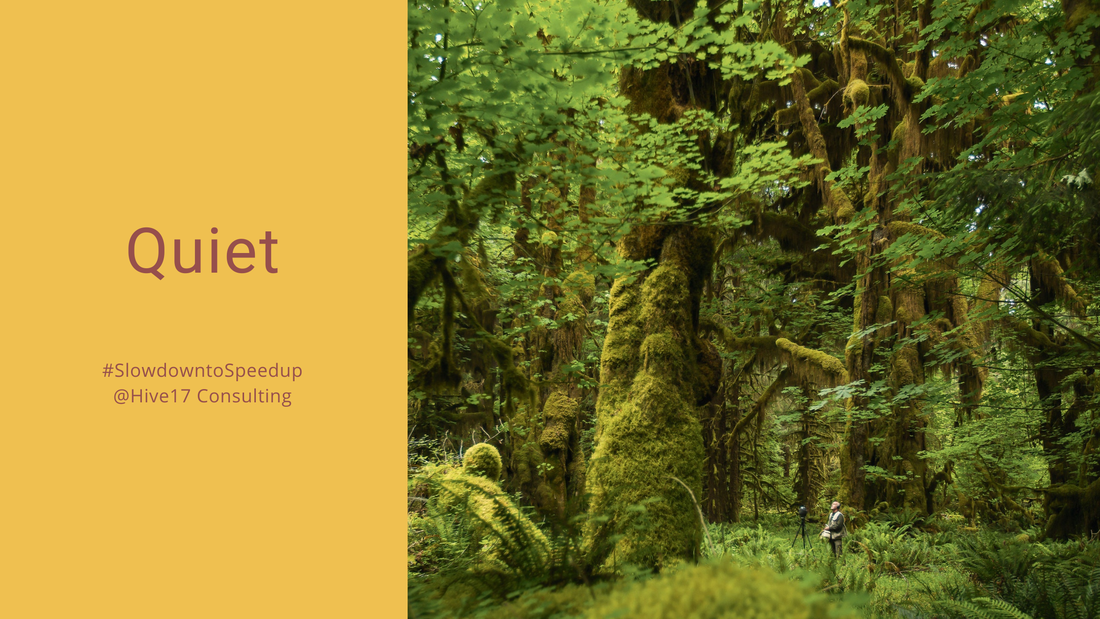
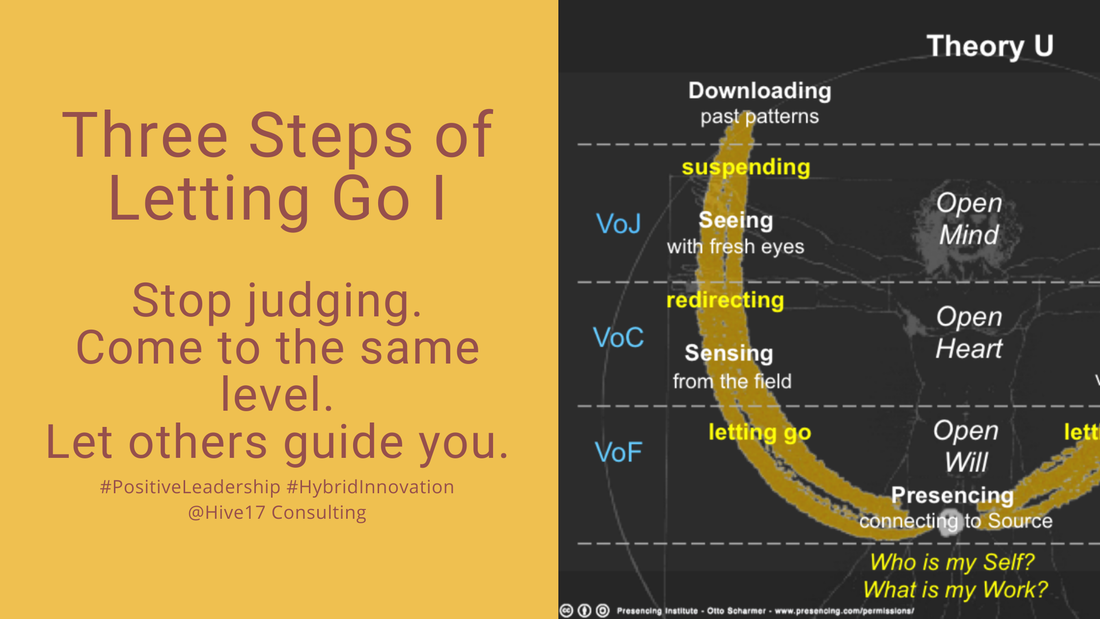
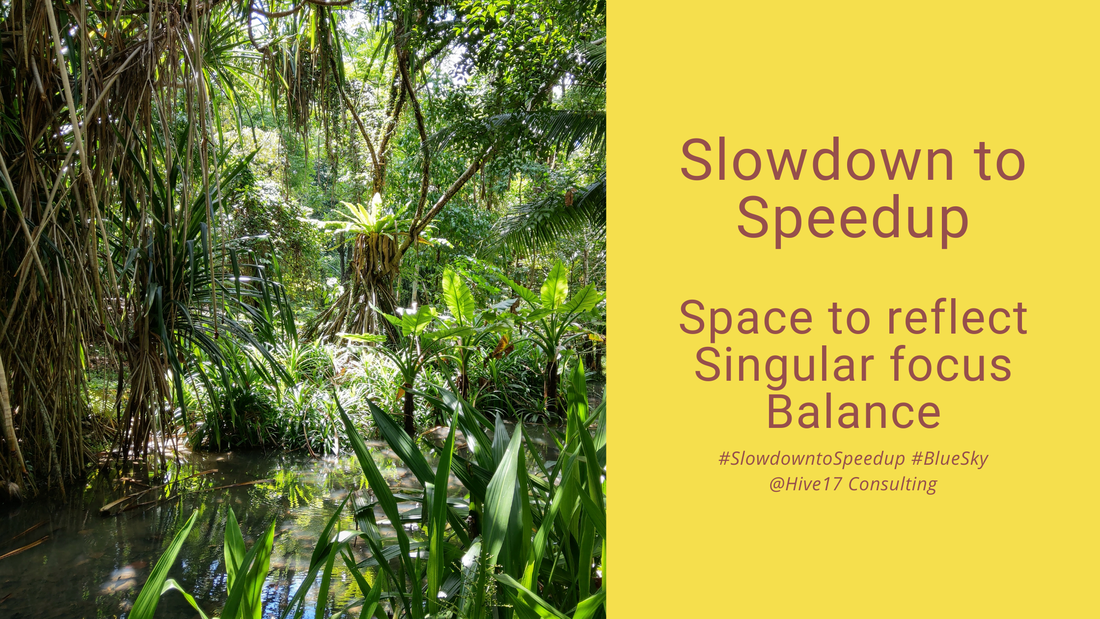
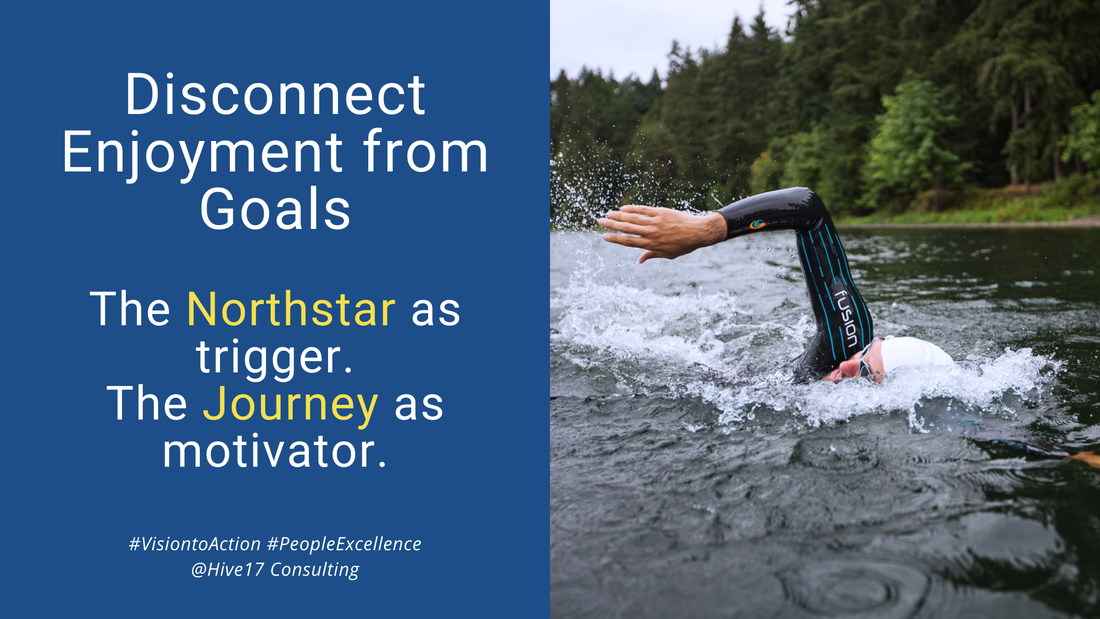
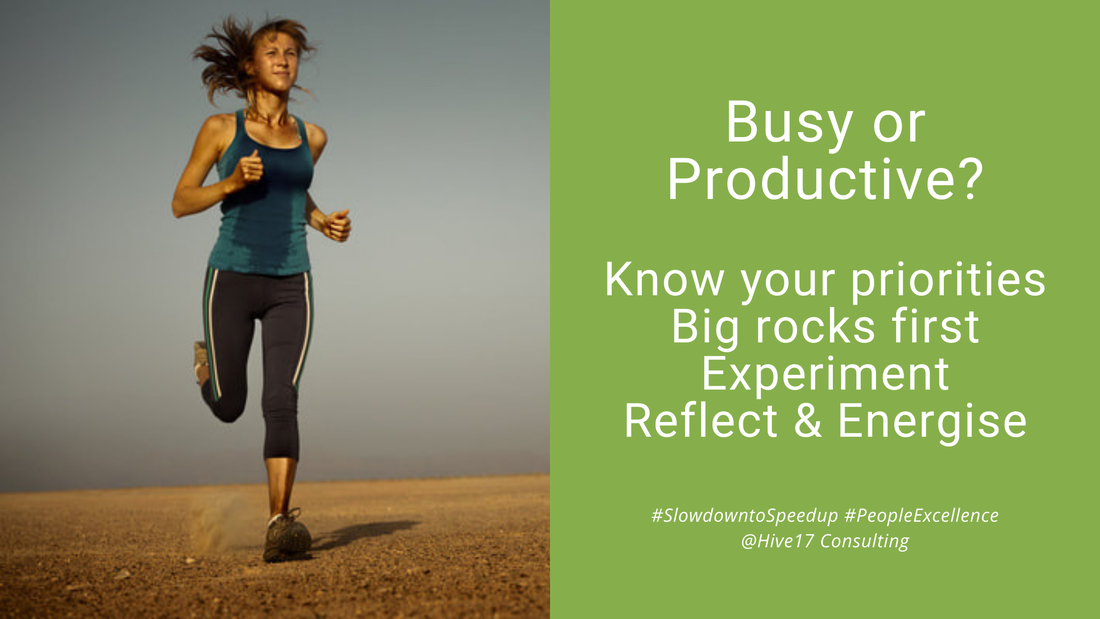
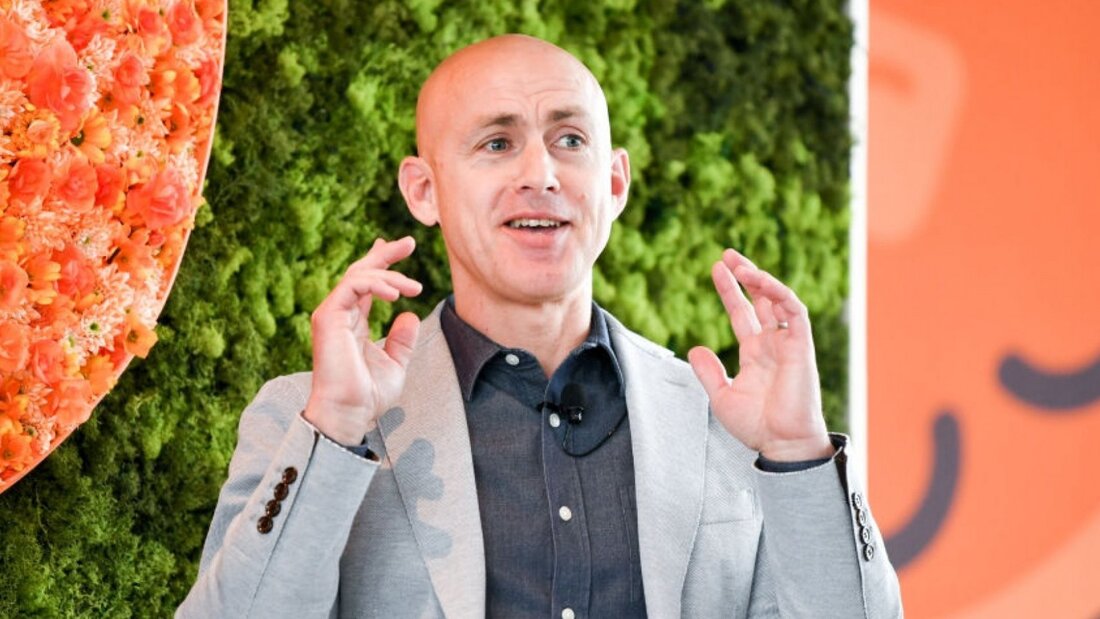



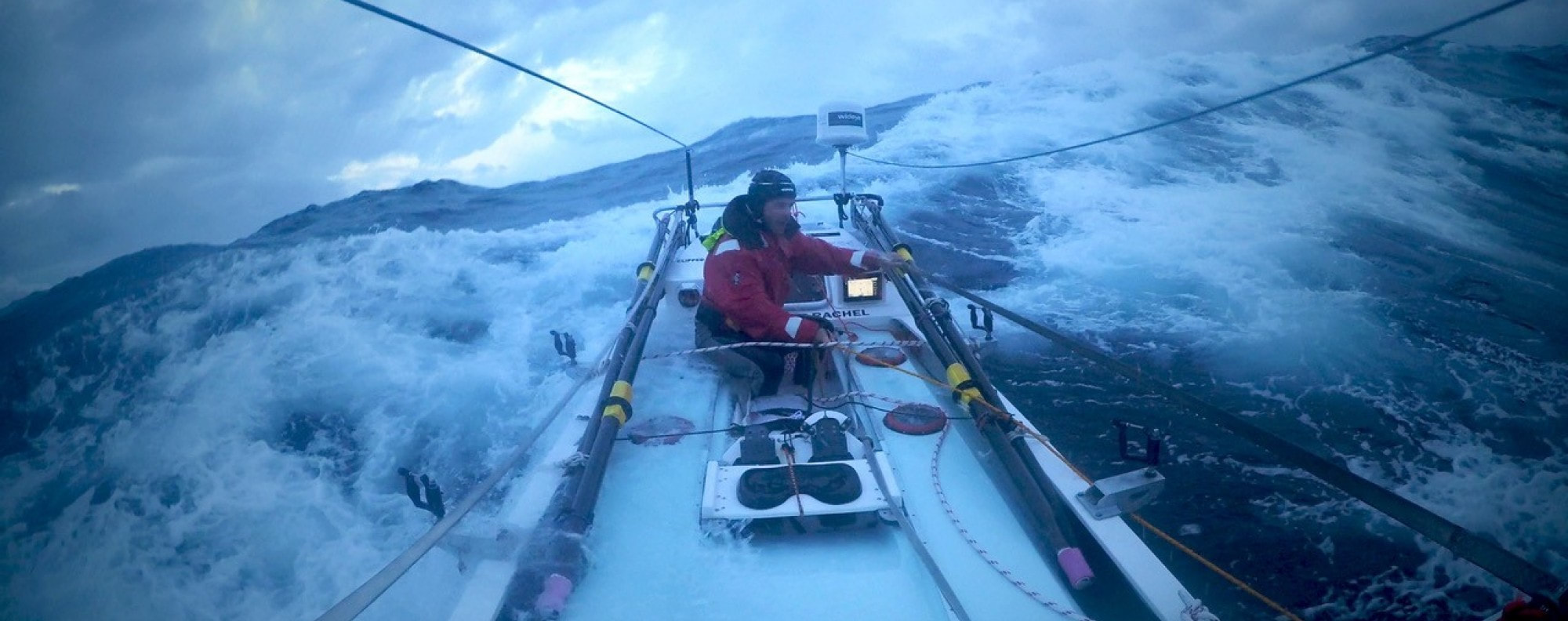

 RSS Feed
RSS Feed